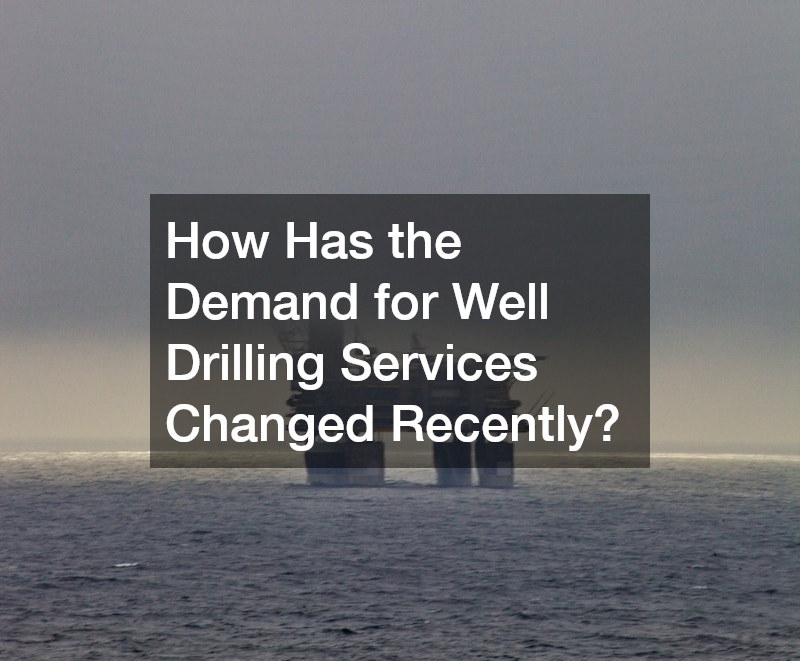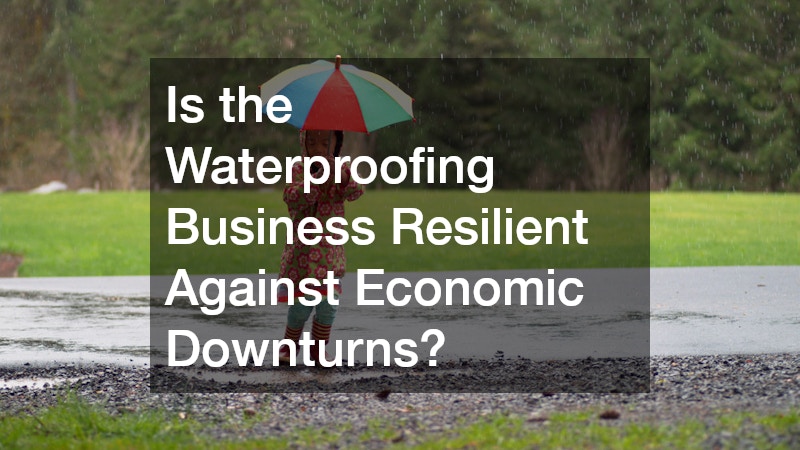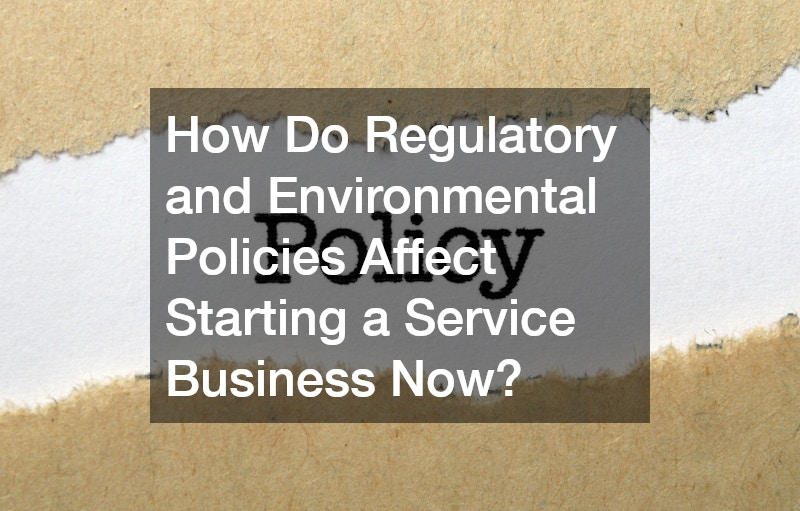Should You Start a Service Business Now?
Insights on Well Drilling, Cremation, Propane, Waterproofing, and More
Introduction
In today’s evolving economy, more entrepreneurs are asking a critical question: Is now the right time to start a service business? Whether due to shifting consumer habits, advancements in technology, or gaps in traditional markets, service industries are seeing dynamic growth. But starting a business in uncertain times requires more than enthusiasm—it demands strategic planning, market awareness, and a readiness to adapt.
This article explores whether now is a good time to launch a service-based enterprise. From the rising need for specialized services like well drilling and waterproofing to increased consumer interest in affordable cremation and sustainable energy alternatives such as propane, this guide outlines the opportunities and challenges facing today’s service business startups. You’ll also discover how sectors like the heating oil delivery business, cesspool pumping businesses, and even assisted living businesses are responding to shifting economic conditions.
What Are the Top Considerations Before Starting a Service Business Now?
Market Research and Demand
Understanding where the market stands is the first step in deciding whether a service business is viable right now. For instance, the housing market directly influences the demand for concrete business services, waterproofing business solutions, and the well drilling business. At the same time, aging populations and shifts in lifestyle preferences are driving steady demand for assisted living and affordable cremation businesses.
Before diving in, entrepreneurs should:
-
Analyze local and regional demand
-
Identify target demographics
-
Understand competitors and service gaps
-
Look at recent growth trends for specific services
For example, the drain cleaning business continues to show resilience thanks to consistent residential and commercial plumbing needs, even during downturns.
Financial Planning and Investment
Startup costs vary widely depending on the industry. A dumpster rental business may require significant upfront investment in bins and transportation, while launching a heating oil delivery business demands both infrastructure and adherence to strict safety standards. Regardless of the field, it’s essential to:
-
Build a realistic budget
-
Account for equipment, labor, insurance, and licensing
-
Prepare for a minimum of 6–12 months of operational costs without profit
Risk Assessment and Management Strategies
Launching a service business now also involves identifying potential threats:
-
Regulatory changes
-
Economic fluctuations
-
Supply chain instability
-
Labor shortages
Mitigation strategies include choosing recession-resistant industries, diversifying income streams, and keeping overhead low in the early stages.

How Has the Demand for Well Drilling Services Changed Recently?
Environmental and Regulatory Changes
Growing environmental awareness and regulatory oversight have changed how well drilling services are managed. In areas facing water scarcity or groundwater contamination, tighter laws are increasing the need for professionally licensed and insured contractors. This adds credibility to reputable businesses while raising barriers for DIY or underregulated operators.
Technological Advancements
Modern well drilling is faster, safer, and more efficient than ever. GPS mapping, soil diagnostics, and automated drilling rigs have transformed the well drilling business, making it more attractive to both customers and investors.
Current Housing Market Trends
With a continued demand for rural and off-grid living, especially post-pandemic, private well installation remains a growing niche. As people build outside urban centers, the need for well services—including maintenance and water quality testing—is expected to rise.
Is the Cremation Service Business Experiencing Growth?
Cultural and Societal Shifts
Shifting religious practices, cost considerations, and simplified end-of-life preferences have made cremation the preferred option for many families. In fact, the affordable cremation business has seen substantial growth as consumers move away from traditional, higher-cost funeral services.
Cost Efficiency
Compared to conventional burial, cremation is significantly more affordable. This appeals to middle-income families, individuals without extensive life insurance, and those prioritizing simplicity.
Regulatory and Licensing Requirements
While entering the cremation industry involves navigating strict regulatory frameworks, it also ensures a professional standard. Entrepreneurs must obtain licenses, follow sanitation protocols, and invest in compliant equipment. Though barriers to entry exist, they can also serve as protective measures against oversaturation.
What Factors Are Influencing the Propane Service Industry Now?
Energy Market Fluctuations
The propane business is heavily influenced by broader energy trends. As oil and electricity prices rise, propane becomes an attractive alternative for residential heating, agriculture, and off-grid energy. It’s particularly relevant in rural areas underserved by traditional utility grids.
Environmental Considerations
While not carbon-free, propane burns cleaner than gasoline or coal. In a world moving toward sustainability, this positions the propane business as a transitional energy source, especially when paired with efficient appliances or vehicles.
Utility and Application Advances
Modern propane applications go beyond home heating. They’re used in commercial kitchens, forklifts, emergency generators, and even fleet vehicles. As a result, businesses are diversifying their services to meet the growing need across various sectors.

Is the Waterproofing Business Resilient Against Economic Downturns?
Residential and Commercial Needs
Both homeowners and businesses require waterproofing to protect their structures from long-term damage. Whether it’s a flooded basement or leaky foundation, water intrusion can cause thousands in structural repairs. This creates a consistent demand for waterproofing business services across seasons.
Technological Innovations
The development of better sealants, membranes, and coatings has increased the reliability and lifespan of waterproofing jobs. Customers are now more willing to invest in preventive measures rather than waiting for costly damage.
Weather Patterns and Demand
Increased rainfall and extreme weather events, largely attributed to climate change, are accelerating the need for waterproofing. More storms mean more homes and businesses vulnerable to flooding, making this a growth industry with strong future projections.
How Important Is Digital Presence for a Service Business Now?
Social Media Marketing Strategies
A strong online presence helps even traditional service industries gain visibility and build trust. Whether you’re running a drain cleaning business or an assisted living business, platforms like Facebook and Instagram allow for targeted advertising and customer engagement.
Website Development and SEO
Customers turn to search engines when they need local services. A well-optimized website ensures you appear in those results. This is especially important for competitive markets like the concrete business or the waterproofing business, where visual evidence of quality work helps drive conversions.
Online Reviews and Reputation Management
Trust is everything in the service industry. Encouraging happy customers to leave positive reviews—while swiftly addressing any negative feedback—can boost your reputation and increase referrals.
What Is the Role of Customer Service in Today’s Service Businesses?
Customer Experience Enhancement
With so many options available, today’s customers demand more than just competent service—they want a positive experience. Businesses that respond quickly, communicate clearly, and go the extra mile stand out in crowded fields.
Feedback Mechanisms and Adaptation
Using customer feedback to evolve your offerings or improve service delivery is key to long-term success. For example, a dumpster rental business that adds flexible scheduling or online booking may outperform a competitor that relies solely on phone orders.
Loyalty Programs
Whether it’s discounted services, referral bonuses, or membership perks, loyalty programs help keep clients returning. This is especially valuable in recurring-need industries like cesspool pumping businesses and the heating oil delivery business.

How Do Regulatory and Environmental Policies Affect Starting a Service Business Now?
Compliance and Licensing
Each industry comes with its own set of legal requirements. From environmental regulations in the propane business to public health standards in assisted living, compliance is non-negotiable. Failing to adhere can result in fines, license revocation, or even business closure.
Environmental Responsibility
Consumers are increasingly drawn to eco-conscious businesses. Whether it’s using sustainable materials in the concrete business or adopting clean-burning fuel in the heating oil delivery business, integrating green practices helps align with modern customer values.
Adaptive Strategies
Regulations change—sometimes quickly. Building flexibility into your business model allows you to adjust to evolving laws without disrupting operations.
What Are the Primary Challenges of Starting a Service Business During Uncertain Times?
Financial Instability
Rising interest rates and fluctuating market conditions make capital harder to secure. Entrepreneurs need solid financial planning, including access to emergency funds and diverse revenue streams to remain resilient during slow periods.
Supply Chain Disruptions
Whether it’s a delay in cement for a concrete business or a parts shortage affecting propane tank maintenance, global supply issues can hit local service businesses hard. Establishing multiple supplier relationships and building inventory buffers can help.
Workforce Management
Finding skilled, reliable labor is a top concern. Competitive wages, training programs, and strong company culture are increasingly vital to attracting and retaining staff. This is particularly relevant for physically demanding roles in the waterproofing or drain cleaning business.

Are There Incentives for Starting a Service Business Now?
Government Grants and Loans
Many federal and state governments offer grants, subsidized loans, or startup assistance programs—especially for industries related to infrastructure, energy, or public health. These include programs that support the expansion of cesspool pumping businesses in rural areas or funds for energy-efficient equipment in the heating oil delivery business.
Tax Benefits
New businesses may qualify for deductions on equipment, fuel, vehicle use, and even home office expenses. It’s worth consulting with an accountant familiar with the service industry to ensure you’re maximizing available tax breaks.
Networking and Mentorship Opportunities
Entrepreneur groups, trade associations, and industry-specific forums provide not only mentorship but also customer referrals, supplier recommendations, and partnership opportunities. These can be particularly valuable for newer entrants in established markets like the dumpster rental business or assisted living business.
Conclusion
Navigating the decision to start a service business now involves more than just identifying a market opportunity—it demands a comprehensive understanding of today’s dynamic economic environment. Successful entrepreneurs must evaluate current market trends, anticipate consumer behavior, interpret changing regulations, and prepare for the logistical demands of operating in a post-pandemic world. It’s not just about having a good idea—it’s about executing that idea in a way that aligns with what communities truly need and value.
As we’ve seen throughout this analysis, certain industries are poised for remarkable growth due to long-term societal shifts. The affordable cremation business is experiencing unprecedented demand as more families seek cost-effective and simplified end-of-life arrangements. The propane business is gaining traction not only as a clean energy alternative but also as a reliable heating and power solution in rural and industrial markets. Meanwhile, the well drilling business is seeing renewed interest as off-grid living, sustainability, and private water access become more attractive to homeowners and developers alike.
At the same time, essential services that may not always dominate headlines continue to prove their resilience. The waterproofing business, for instance, addresses increasing concerns over flood damage and structural integrity in residential and commercial properties. Cesspool pumping businesses and the heating oil delivery business remain staples in specific regions, providing irreplaceable services in rural and older communities that still rely on septic systems and oil-based heating.
These aren’t fleeting trends—they’re foundational needs that underscore how deeply intertwined service businesses are with public health, safety, and comfort. That’s why, even in periods of economic uncertainty, service providers maintain a crucial foothold in their local markets. They’re not optional—they’re essential.
Beyond operational considerations, modern service businesses must also embrace digital transformation. In today’s hyperconnected world, digital marketing, responsive customer service, and reputation management are not just helpful tools—they’re business necessities. Service providers with strong online visibility and high customer ratings consistently outperform competitors. Whether it’s a dumpster rental business reaching contractors through geo-targeted ads or an assisted living business gaining trust through heartfelt testimonials and virtual tours, digital presence is now directly tied to profitability and brand loyalty.
Of course, starting a service business now isn’t without its hurdles. Persistent supply chain delays may impact equipment delivery timelines. Rising costs can make budgeting more complicated, and staffing challenges can limit scalability. But these barriers are not insurmountable. Entrepreneurs who approach these issues proactively—by sourcing locally, investing in employee training, or building buffer time into project timelines—are already proving that resilience is possible.
Regulatory compliance is another area requiring attention. Whether you’re navigating health and safety standards in the assisted living business, environmental policies in the propane business, or local permitting processes for a concrete business, staying up to date is essential. Yet, many states are offering incentives to help small businesses thrive—through grants, low-interest loans, and tax benefits for sustainable practices. In fact, some of the most successful new ventures in recent years have been launched during periods of instability, precisely because their founders seized opportunities others overlooked.




